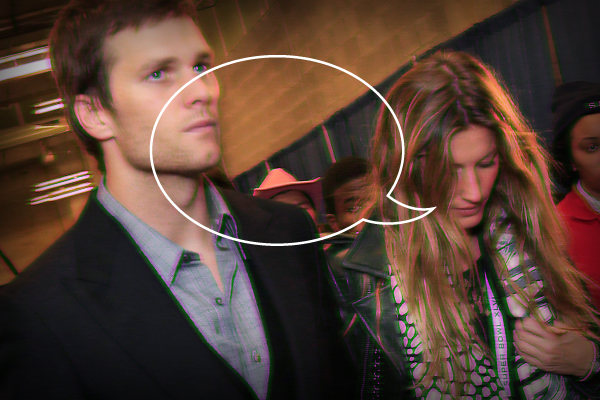“You shouldn’t have said it.”
“Yes.”
“I wish you wouldn’t have.”
“I did.”
“That’s what I’m saying.”
“I’m sorry.”
“I know. I’m not mad.”
“You shouldn’t be.”
“I’m not.”
“It’s just that the man wouldn’t stop.”
“You shouldn’t start with people who won’t stop.”
“I know. I’m mad at myself.”
“You shouldn’t be. Be mad at him.”
“I am mad at him, too.”
“Right. You should be.”
“He started talking about you and he wouldn’t stop.”
“That’s what they do.”
“He was saying horrible things.”
“Right. That’s also what they do.”
“If you had been there he would have stopped.”
“I couldn’t be there.”
“Or maybe he never would have started.”
“I couldn’t be there.”
“I’m just saying I wish you were there.”
“I couldn’t be.”
– – – – – –
“I have a question.”
“Yes.”
“How can you answer? You don’t even know what the question is.”
“I wasn’t answering. I was just saying yes.”
“OK.”
“What’s your question?”
“You said that he said horrible things.”
“Yes.”
“That’s not my question.”
“I know. Go on.”
“OK. What were they?”
“What were what?”
“The horrible things.”
“You heard them.”
“The things I heard weren’t so horrible.”
“They were.”
“They weren’t so nice but were they so horrible?”
“Yes. I saw his eyes.”
“You did?”
“You should have seen them. How they looked.”
“How did they look?”
“It’s not easy to say.”
“The things he said mean nothing.”
“They mean something. Something horrible.”
“What do they mean?”
“You know.”
“He said I was owned.”
“Yes.”
“Does he mean outplayed?”
“I don’t know.”
“Does it mean defeated?”
“I don’t know.”
“Those things aren’t great, it’s true.”
“They’re horrible.”
“But they’re true.”
“They’re not.”
“They happened.”
“Does that make them true?”
“Yes.”
“I agree with you. But I don’t agree with him.”
“I think we’re saying the same thing.”
“Me and you?”
“Me and him.”
“You’re not being horrible.”
“I don’t think he was, either, even if you saw his eyes.”
“What?”
“Isn’t he just saying what happened?”
“No.”
“What is he doing, then?”
“I have no answer.”
– – – – – –
“I’m asleep.”
“What?”
“I’m sleeping.”
“Wake up.”
“I’m awake.”
“I dreamed that I said something.”
“I have that dream all the time.”
“I dreamed that I said something to him.”
“To who?”
“To the man.”
“What man?”
“The man who said horrible things.”
“You’re still thinking about him?”
“No.”
“You’re dreaming about it.”
“Yes.”
“That seems worse.”
“It felt better.”
“What was the dream?”
“I told you.”
“I was sleeping.”
“I dreamed that I said something.”
“That’s not a dream.”
“What?”
“You did say something.”
“I did.”
“That’s how this all started.”
“I said that same thing I said in real life.”
“Is that a dream? It might just be a memory.”
“But when I said it in real life it felt wrong.”
“It was wrong.”
“In my dream it felt right.”
“What do you mean?”
“I don’t know.”
“Do you mean accurate?”
“I don’t know.”
“Do you mean justified?”
“I don’t know.”
“Well, both of those things are untrue.”
“Oh.”
“How is it accurate? How is it justified?”
“Because you can only do so much.”
“You shouldn’t say that.”
“In my dream? It felt right.”
“I mean in real life.”
“I feel better now that I said it.”
“I thought you felt worse.”
“I feel better that I said it in my dream.”
“I can’t sleep.”
“I’m wide awake.”
– – – – – –
“You can only do so much.”
“I thought we had stopped with this.”
“Others have to do the rest.”
“We need to not start with this.”
“I didn’t think before I said it.”
“I know.”
“But now that I have thought about it I know I was right.”
“What?”
“You can only do so much. Others have to do the rest.”
“Don’t say that.”
“I may never stop saying it.”
“You have to stop.”
“You don’t own me.”
“You should see yourself.”
“What do you mean?”
“You should see how you look.”
“How do I look?”
“Your eyes are really something.”
“Isn’t it great?”
“I don’t think we’re saying the same thing.”
“You should have been there.”
“I couldn’t be there.”
“I wish you would have.”
“You shouldn’t have said it.”
“No?”

